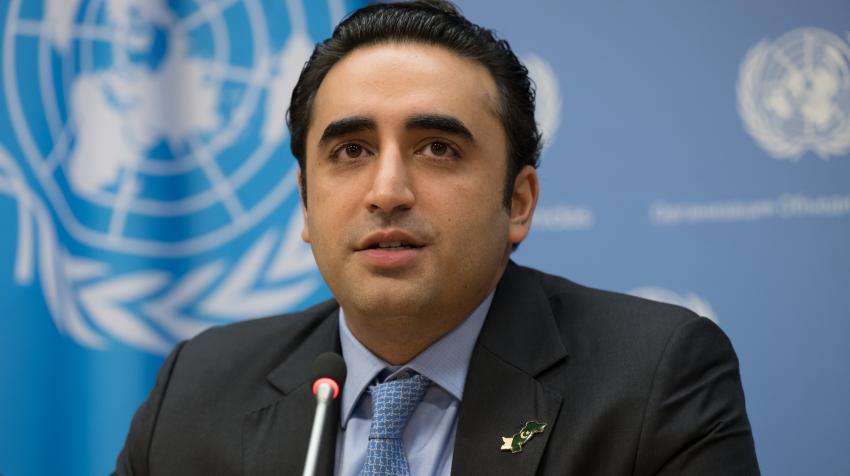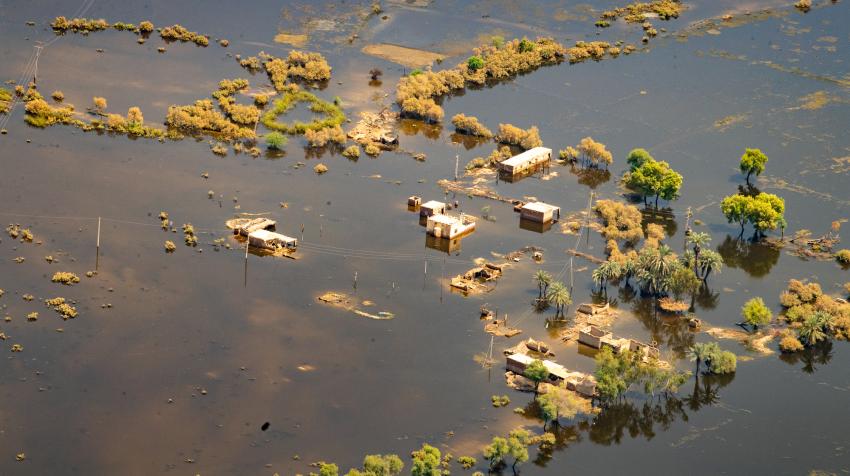As Chair of the Group of 77 and China at COP 27—the twenty-seventh (2022) Conference of the Parties to the United Nations Framework Convention on Climate Change—it was my responsibility to bring together the countries of the world to finally take realistic and significant steps to address the current and future implications of climate change and global warming, with particular reference to the developing world. For me, this was not just a professional responsibility but a deeply personal one, as I also serve as Foreign Minister of Pakistan, a country that was ravaged by climate change catastrophe in 2022. The decision taken in Sharm El-Sheikh, Egypt to establish a fund to help developing countries deal with loss and damage resulting from the adverse impacts of climate change was a momentous first step, a signal of hope for humanity and the planet.
The negative effects of climate change and global warming have progressively become more frequent and ferocious. Those who have contributed the least to global warming are suffering the most. For 30 years, the most vulnerable countries have pressed for a fund through which the countries that have added the most to global carbon emissions would help vulnerable countries recover from climate disasters and other consequences of climate change, including rising sea levels, drought, hurricanes and floods.
The epic floods in Pakistan this year vividly and brutally confirmed the growing magnitude of climate disasters. They left tens of thousands killed or injured; millions displaced; 13,000 km of roads, 2 million homes, 500 bridges and 5 million acres of crops destroyed; and one third of the country literally under water. My home province of Sindh was the most devastated. Only after witnessing first-hand the scale of the catastrophe, the indescribable suffering of innocent people and incalculable damage, and realizing that there was no international financial mechanism to address disasters of this scale, did I fully understand the magnitude of the loss and the absolute necessity to take bold steps to save our people and our planet. This monumental disaster—along with simultaneous floods in Nigeria, drought in the Horn of Africa, and hurricanes in the Pacific and the Caribbean—reinforced the determination of developing countries to secure climate justice.
While the agreement does not establish the legal responsibility of those who have contributed the most to climate change and global warming, it does confirm the central principle of climate justice.
As Chair of the Group of 77 and China (G-77 and China) delegation, I proposed the discussion on a loss and damage financing facility last June during the preparations for COP 27. We faced familiar resistance to placing the issue on the Conference agenda, but ultimately, and not easily, we succeeded, thanks to the tenacious efforts of Pakistan, actively supported by the most vulnerable and other developing countries.
I believe it was important for Pakistan to lead the developing countries in the subsequent negotiations at the Conference to press for the establishment of the fund. We commend the solidarity of the G-77 and China in pursuing the creation of the loss and damage funding arrangements and of the fund itself, and we appreciate the ultimate acceptance of the proposal by the developed nations, including the United States and the countries of the European Union.
Developing countries look forward to urgent work in the 24-member Transitional Committee to finalize the fund’s institutional arrangements, structure, governance and terms of reference; define the elements of the new funding arrangements; identify and expand sources of funding; and establish means to ensure coordination and complementarity with existing arrangements. Among the most important tasks for the Committee is to determine the scale of funding required to meet the current consequences of climate change. This may sound technical to the lay reader, but it literally means life or death for our children and grandchildren, and for generations yet unborn.
While the agreement does not establish the legal responsibility of those who have contributed the most to climate change and global warming, it does confirm the central principle of climate justice—that those who are suffering the most from the impacts of climate change, although they have contributed the least to global warming, deserve financial support from those who have added the most to the problem and have done the most damage to the environment.
A first test of climate justice will be the response to the plan by Pakistan for rehabilitation and reconstruction necessitated by the flood disaster and for building resilience against future catastrophes. The plan will be submitted to a pledging conference to be convened jointly by Pakistan and United Nations Secretary-General António Guterres in January 2023. The World Bank has estimated that Pakistan suffered damage amounting to over $30 billion and will require at least $16.5 billion in urgent external support.

The loss and damage fund has yet to be operationalized. Pakistan expects that financing for its rehabilitation and reconstruction plan will come from industrialized countries and international financial institutions, including the International Monetary Fund and multilateral development banks. Such support could include debt write-offs, swaps and restructuring; new Special Drawing Rights (SDRs) allocations or rechanneling of the developing countries’ unused SDRs; direct support for reconstruction projects; and private investment for projects that can be structured, for example, with blended finance, to be commercially viable. We also expect expressions of solidarity from the friends of Pakistan in the Islamic world and the global South.
Although climate impacts have become inevitable due to the 1.1°C of global warming that has already occurred over the last 150 years, it remains vital to limit the impacts of climate change as far as possible going forward. More should have been done before. It is our responsibility, however, not to complain about the past but to take action in the present.
It is therefore concerning that the adaptation plans of so many developing countries are still not funded. The Glasgow Climate Pact to “at least double” climate financing for adaptation must be urgently fulfilled. At COP 27, Pakistan proposed immediate implementation of this decision. We expect that at COP 28, to be held in the United Arab Emirates next year, we will be able to establish a mechanism to measure and monitor financial flows for climate adaptation.
The onus to ensure that global temperature rise is limited to 1.5°C is mainly on the industrialized countries that have consumed two thirds of the “carbon budget” over the past 150 years.
Most importantly, the commitment made since 2009 to mobilize $100 billion annually in climate finance has not been fulfilled. The developed countries need to urgently meet this commitment and agree to a new collective quantified goal (NCQG) target for larger climate financing from the floor of $100 billion by the next Conference of the Parties in November 2023.
Of course, the common and ultimate goal is to halt global warming and avoid the “tipping points” that climate scientists predict will lead to global catastrophe. However, the onus to ensure that global temperature rise is limited to 1.5°C is mainly on the industrialized countries that have consumed two thirds of the “carbon budget” over the past 150 years. The remaining one third of this “budget” is what developing countries will need to grow out of poverty and achieve the Sustainable Development Goals (SDGs). Therefore, the mitigation commitments of the global North must be enhanced and accelerated. Unfortunately, it was evident at COP 27 that the industrialized countries had not implemented the mitigation commitments assumed in Glasgow and were reluctant to agree to a larger and faster pathway to reduce emissions and keep the 1.5°C target alive.
Climate action is but one component of the cooperative efforts required to achieve the SDGs—to end hunger and poverty, promote health and education, restore global growth and ensure lives of dignity and well-being for all nations and peoples.
As Pakistan concludes its tenure as Chair of the G-77 and China at the end of this year, it will make a final push to advance the SDGs and climate goals at a ministerial conference of the developing countries to be held in New York in mid-December. The outcomes of this meeting will, we hope, set the agenda that the global South can promote at the 2023 SDG Summit and COP 28 next year.
It may be too late for the victims of the floods in Pakistan, but it is my fervent hope that the loss and damage facility will be in place to assist the next country to be devastated. For what happened to Pakistan will not stay in Pakistan. In 2022 it was my country; next year it could be anywhere. Or everywhere. The future of the globe depends on our common efforts, which must move forward now.
The UN Chronicle is not an official record. It is privileged to host senior United Nations officials as well as distinguished contributors from outside the United Nations system whose views are not necessarily those of the United Nations. Similarly, the boundaries and names shown, and the designations used, in maps or articles do not necessarily imply endorsement or acceptance by the United Nations.




